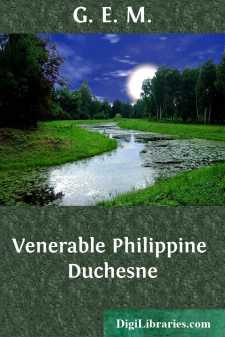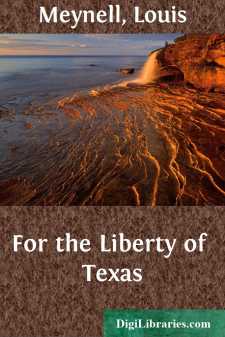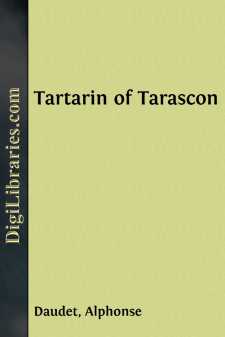Categories
- Antiques & Collectibles 13
- Architecture 36
- Art 48
- Bibles 22
- Biography & Autobiography 813
- Body, Mind & Spirit 142
- Business & Economics 28
- Children's Books 13
- Children's Fiction 10
- Computers 4
- Cooking 94
- Crafts & Hobbies 4
- Drama 346
- Education 46
- Family & Relationships 57
- Fiction 11828
- Games 19
- Gardening 17
- Health & Fitness 34
- History 1377
- House & Home 1
- Humor 147
- Juvenile Fiction 1873
- Juvenile Nonfiction 202
- Language Arts & Disciplines 88
- Law 16
- Literary Collections 686
- Literary Criticism 179
- Mathematics 13
- Medical 41
- Music 40
- Nature 179
- Non-Classifiable 1768
- Performing Arts 7
- Periodicals 1453
- Philosophy 64
- Photography 2
- Poetry 896
- Political Science 203
- Psychology 42
- Reference 154
- Religion 513
- Science 126
- Self-Help 84
- Social Science 81
- Sports & Recreation 34
- Study Aids 3
- Technology & Engineering 59
- Transportation 23
- Travel 463
- True Crime 29
Sort by:
by:
Charles Kingsley
THE FIRST DISCOVERY OF AMERICA Let me begin this lecture with a scene in the North Atlantic 863 years since. “Bjarne Grimolfson was blown with his ship into the Irish Ocean; and there came worms and the ship began to sink under them. They had a boat which they had payed with seals’ blubber, for that the sea-worms will not hurt. But when they got into the boat they saw that it would not hold...
more...
by:
G. E. M.
CHAPTER I VOLUNTEERS FOR THE AMERICAN MISSIONS In the early annals of the Catholic Church in this country, no name stands more preeminent than that of the Venerable Philippine Duchesne. She was one of the first, and altogether the greatest, among the spiritual daughters of the Blessed Madeleine Sophie Barat, so well known as the Foundress of the Society of the Sacred Heart. The pioneer of that...
more...
CHAPTER I At about four o'clock on a windy, warm September afternoon, four girls came out of the post-office of Monroe, California. They had loitered on their way in, consciously wasting time; they had spent fifteen minutes in the dark and dirty room upon an absolutely unnecessary errand, and now they sauntered forth into the village street keenly aware that the afternoon was not yet waning, and...
more...
by:
Louis Meynell
THE HOME ON THE FRONTIER. "Dan! Dan! Come quick and see what I brought down with the gun!" "Why, Ralph, was that you I heard shooting? I thought it was father." "No; I was out, down by the river bank, and I brought down the finest deer you ever set eyes on. He was under the bunch of pecan-trees, and I let him have it straight in the neck and brought him down the first crack. Now...
more...
In the name of the Father, Son, and Holy Ghost, God keep me! I am an Usher to a Prince, and delight in teaching the inexperienced. It is charitable to teach ignorant youths. If any such won’t learn, give them a toy. One May I went to a forest, and by the Forester’s leave walked in the woodland, where I saw three herds of deer in the sunshine. A young man with a bow was going to stalk them, but I...
more...
CHAPTER I INTRODUCING AN AIRSHIP AND COUNT ZEPT This story, which is an account of the peculiar and marvelous adventures by which two Canadian boys—Norman Grant and Roy Moulton—achieved a sudden fame in the Arctic wilderness of the great Northwest, had its beginning in the thriving city of Calgary. The exact time was the big day of the celebrated “Stampede,” Calgary’s famous civic...
more...
by:
Various
COUCY-LE-CHÂTEAU, a village of northern France, in the department of Aisne, 18 m. W.S.W. of Laon on a branch of the Northern railway. Pop. (1906) 663. It has extensive remains of fortifications of the 13th century, the most remarkable feature of which is the Porte de Laon, a gateway flanked by massive towers and surmounted by a fine apartment. Coucy also has a church of the 15th century, preserving a...
more...
"Mine ear is open, and my heart prepared:The worst is worldly loss thou canst unfold:Say, is my kingdom lost?" Shakespeare. It was a feature peculiar to the colonial wars of North America, that the toils and dangers of the wilderness were to be encountered before the adverse hosts could meet. A wide and apparently an impervious boundary of forests severed the possessions of the hostile...
more...
by:
Alphonse Daudet
EPISODE THE FIRST, IN TARASCON I. The Garden Round the Giant Trees. MY first visit to Tartarin of Tarascon has remained a never-to-be-forgotten date in my life; although quite ten or a dozen years ago, I remember it better than yesterday. At that time the intrepid Tartarin lived in the third house on the left as the town begins, on the Avignon road. A pretty little villa in the local style, with a...
more...
by:
Ralph Connor
THE CITY ON THE PLAIN Not far from the centre of the American Continent, midway between the oceans east and west, midway between the Gulf and the Arctic Sea, on the rim of a plain, snow swept in winter, flower decked in summer, but, whether in winter or in summer, beautiful in its sunlit glory, stands Winnipeg, the cosmopolitan capital of the last of the Anglo-Saxon Empires,—Winnipeg, City of the...
more...











